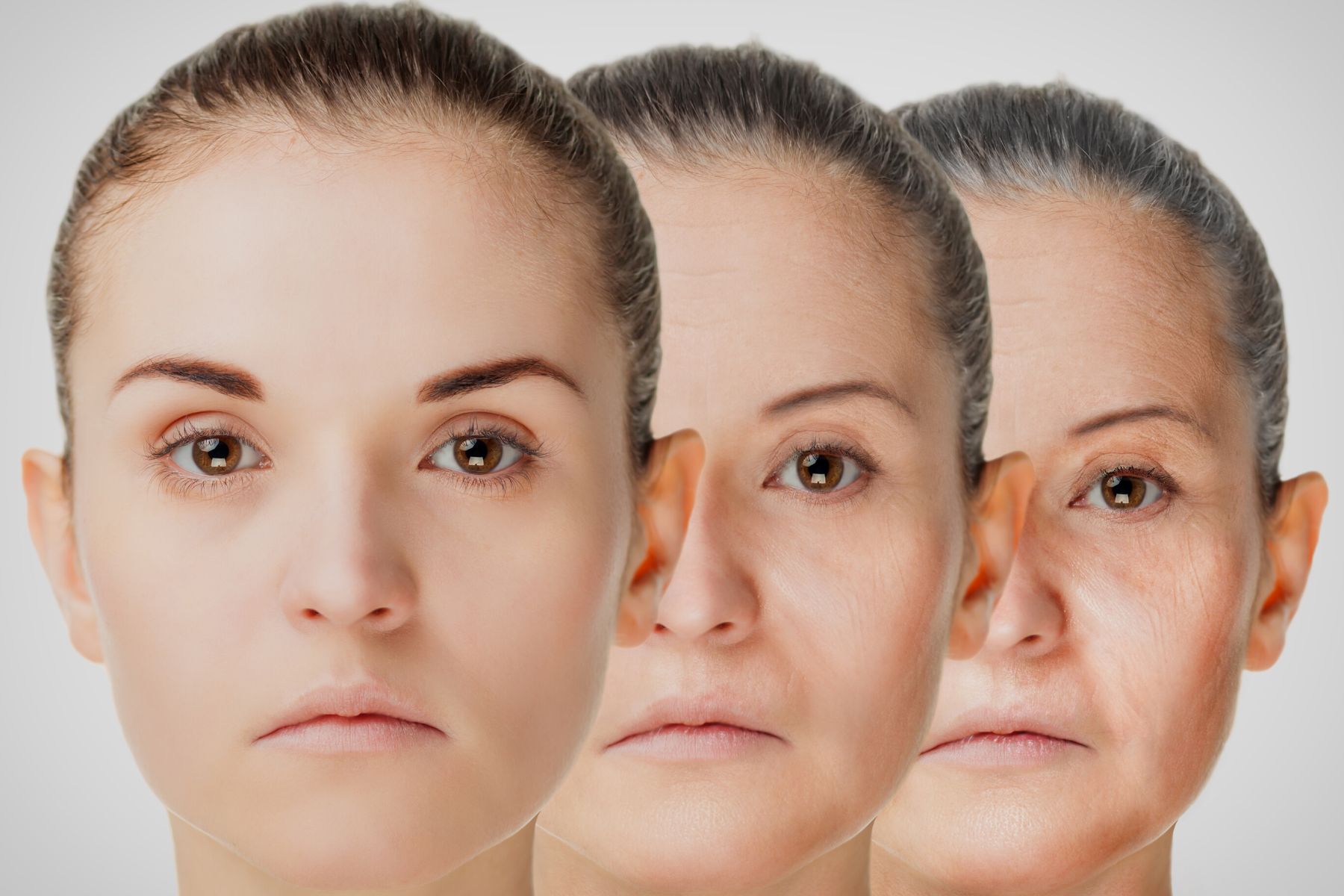What is your biological age?
How old are you? This is a question you have probably been asked countless times throughout your life. But what many of us don’t think about when we ask this question, is the difference between chronological age and biological age. Let’s dig into what those differences are, and how your lifestyle and habits play a role in shaping your biological age.

How old are you? This is a question you have probably been asked countless times throughout your life. But what many of us don’t think about when we ask this question, is the difference between chronological age and biological age. Let’s dig into what those differences are, and how your lifestyle and habits play a role in shaping your biological age.
First, we need to define chronological and biological age. Chronological age refers to the actual amount of time you have been alive, from the moment of birth until now. This is where we get our birthdays from, what we see on our IDs and how many of us think about our lifespan. No matter what we do, our chronological cannot be slowed or sped up. On the other hand, biological age is not based on how much time you have spent on earth, but it is more of an estimation of how much life you have left based on your physiology. Now, what is amazing, is that you can influence this age!
How is biological age calculated?
Biological age is determined in a few ways via genetic assessment. One of which is by the length of your telomeres. A telomere is a structure that acts as an end cap for a DNA molecule, similar to that of a cap on the end of your shoelace to prevent fraying. As we age, telomeres will wear out and shorten because of repeated cell division, stress, and inflammation. When a cell prepares for division, the DNA molecule that looks like the double helix, we all heard about in biology class, unties allowing the genes within to be copied. This does not duplicate the telomere, therefore some of it gets snipped off gradually decreasing its length, but normally their length is long enough that they can withstand this over a person’s lifespan. When the telomere is shortened and eventually disappears, the wear and tear begin to affect your actual DNA (aging the cell) which damages the cells resulting in increased risk for disease and mortality due to the degeneration.
Another way to look at your biological age is DNA methylation, which is a chemical reaction that occurs when a methyl group is added to DNA. This often modifies the function of the genes and affects the expression of that gene — this could involve developing wrinkles or losing bone density. The methylation process can provide insight into a person’s biological age, as research has shown that certain parts of the body age fast than others. If a region is rapidly higher in biological age than in chronological age, that can reveal possibilities of chronic illness — and even cancer risk — of that tissue.
What determines your biological age?
Now that we have discussed the differences between chronological and biological age, let’s dive into the factors that determine your biological age and how can you improve it. By looking at the four pillars of optimal health (exercise, recovery, nutrition, and stress management), you can make gradual changes to your overall biological age based on the proven research.
Exercise
Most people have been told by their doctors over the years to exercise more because that will make them healthier. But many of us do not realize that exercise can affect our biological age, improve longevity and overall quality of life. The American Heart Association recommends 150 minutes (2.5 hours) of moderate intensity aerobic activity or 75 mins of vigorous aerobic activity per week. Now think to yourself, are you consistently getting that each week? Research has shown that individuals who are sedentary have a higher predicted biological age than their chronological age. Conversely, those who more consistently and frequently engage in aerobic exercise have a biological age that is closer to their chronological age. In a study by Garatachea et al, they reviewed how exercise attenuates major hallmarks of aging and is linked to longer telomere length, in addition to decreased negative effects to DNA.
Nutrition
Diet also plays a major role in the aging process. Research has shown that changes in diet done over a consistent period — including lowering caloric intake, eating majority plant-based foods, limiting processed foods and focusing on the Mediterranean diet — aide in decreasing biological age. However, it is always recommended to discuss any significant changes to your diet your healthcare provider to ensure full understanding of dietary needs specific to you.
Recovery
Regarding recovery, sleep is one of the major areas to focus on. The CDC recommends adults ages 18–60 have seven or more hours of sleep each day. Sleep is essential for your body to function properly and for it to recover from the stresses (both mental and physical) of the day. Without adequate sleep it has been shown that there can be an increase in biological age and increased risk of co-morbidities, resulting in decreased longevity. With sleep it is important to understand that the minimum time required is when you are “asleep,” not just in bed. In some cases, one may need to be in bed for up to nine hours to achieve seven or more hours of sleep based on their sleep habits and overall quality. Following health habits such as disconnecting from screens at least 30 mins before bed, avoiding heavy meals two hours before bed, and keeping consistent bedtime and awake time are just a few methods of improving sleep.
Stress Management
Stress of course also plays a role on longevity and biological age as we would expect. Stress is something that we all go through, and we all work daily to manage. This stress can be both physical or mental and can come from various avenues of our lives. Stress has been shown to increase biological age when measured via DNA methylation during the time when is stressed. While it is true that the process returns to baseline once the stressor is removed, a key point is that if this stress is repetitive and consistent overtime which does not allow the body to reset and return to baseline. To help manage stress, meditation, and breathing techniques have been shown to decrease resting heart rate and aide the body in managing stress better over time. In addition, many have found benefits from meeting with mental health or performance coaches to aide in various strategies of managing stress.
Knowing where to start when optimizing your health and longevity is sometimes the most difficult part. Looking at it through the above four pillars and understanding how you stand in each of them will help guide you in the right direction. Some may need to address only one area, and some may need to address all. But they all work together, require balance and constant adjustment to live a healthy lifestyle.
Work Cited
Gao X, Huang N, Guo X, Huang T. Role of sleep quality in the acceleration of biological aging and its potential for preventive interaction on air pollution insults: Findings from the UK Biobank cohort. Aging Cell. 2022;21(5):e13610. doi:10.1111/acel.13610
Garatachea N, Pareja-Galeano H, Sanchis-Gomar F, Santos-Lozano A, Fiuza-Luces C, Morán M, Emanuele E, Joyner MJ, Lucia A. Exercise attenuates the major hallmarks of aging. Rejuvenation Res. 2015 Feb;18(1):57-89. doi: 10.1089/rej.2014.1623. PMID: 25431878; PMCID: PMC4340807.
Han KT, Kim DW, Kim SJ, Kim SJ. Biological age is associated with the active use of nutrition data. Int J Environ Res Public Health. 2018;15(11):2431. Published 2018 Nov 1. doi:10.3390/ijerph15112431
Ho E, Qualls C, Villareal DT. Effect of diet, exercise, or both on biological age and healthy aging in older adults with obesity: Secondary analysis of a randomized controlled trial. J Nutr Health Aging. 2022;26(6):552-557. doi:10.1007/s12603-022-1812-x
Lehallier B, Shokhirev MN, Wyss-Coray T, Johnson AA. Data mining of human plasma proteins generates a multitude of highly predictive aging clocks that reflect different aspects of aging. Aging Cell. 2020;19(11):e13256. doi:10.1111/acel.13256
Poganik JR, Zhang B, Gaht GS, Kerepesi C, Yim SH, et al. Biological age is increased by stress and restored upon recovery. bioRxiv. doi:10.1101/2022.05.04.490686

Robert Mahlman
Robert Mahlman, PT, DPT, OCS, is the Westport Site Lead and a board certified orthopedic clinical specialist and certified Schroth therapist who specializes in the treatment of various orthopedic injuries, along with scoliosis and concussion management.
RECENT POSTS
CATEGORIES

> Privacy Practices
> Terms and Conditions
Copyright © Performance 2022.
All rights reserved.
JOIN OUR COMMUNITY
Sign up for our mailing list to learn more about Performance, stay up-to-date on our offerings, and receive our newsletter.
Digital Marketing by Rebel Interactive Group
